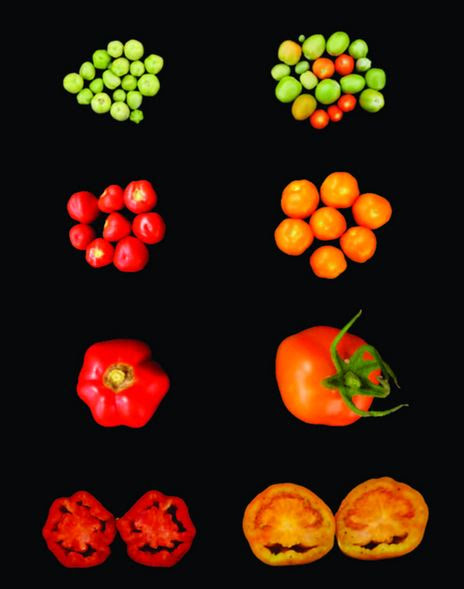|
News Bits
Oslo, Norway--As a consequence of record high natural gas prices in Europe, Yara is temporarily curtailing ammonia fertilizer production at its Ferrara (Italy) and Le Havre (France) plants. The two plants have a combined annual capacity of 1 million tonnes ammonia and 0.9 million tonnes urea.
Including optimization and maintenance at other production facilities, Yara's European ammonia and urea production is expected to be operating at approximately 45% of capacity by the end of this week.
Yara will continue to monitor the situation and to the extent possible use its global production system to keep supplying customers and secure continuity in food supply chains, but curtailing production where necessary due to challenging market conditions.
Benchmark futures for wheat climbed by the exchange limit of 85 cents, or 7%, to close at $12.94 a bushel. That builds on a massive surge of 41% last week, the biggest gain in data spanning six decades. The Paris contract for wheat breached an all-time high after jumping as much as 14%."
On Monday, Bloomberg writers Kim Chipman and Megan Durisin reported that, "Chicago wheat settled at the highest price on record as Russia's intensifying war in Ukraine cuts off supplies from one of the world's leading breadbaskets.
However, Chipman and Durisin pointed out that, "The gains stand in contrast to the cash market, where some buyers are balking at the lofty prices as traders try to get a handle on the war's impact."
On Tuesday, Bloomberg writers Megan Durisin, James Poole, and Sybilla Gross reported that, "Wheat futures reached unprecedented highs on Tuesday, highlighting the severe fallout for global food supplies from Russia's invasion of Ukraine.
"Most-active futures in Chicago leaped to $13.635 a bushel at the start of the trading session, representing a stunning 77% gain in the staple grain's price this year. The world is facing a huge supply shock as the war cuts off shipments from a region that accounts for a quarter of global grains trade and the bulk of sunflower oil."
Genome-edited beef could be on the market as soon as two years from now, the Food and Drug Administration said in announcing it has made a "low-risk determination" in connection with the first intentional genomic alteration in an animal for food use.
The gene-edited cattle have shorter hair, making them more tolerant of hot weather. FDA says the genetic alteration raises no safety concerns.
Acceligen, the company that produced the gene-edited cattle, said the SLICK trait "will be used to transform beef production to be more sustainable and improve animal welfare in warmer climates."
Take note: FDA doesn't appear ready to give up its regulatory authority for gene-edited food animals. Industry groups would like to see the authority transferred to USDA. FDA, however, used the announcement of the Acceligen approval to urge biotech companies to submit more traits for approval.
The Hill reports:
Hundreds of large U.S. companies have suspended their operations in Russia, including iconic American brands such as McDonald's, Coca-Cola and Disney, amid a corporate exodus from the country.
Corporate America has joined much of the international community in condemning Russian President Vladimir Putin's violent invasion of Ukraine, while pledging to aid the humanitarian effort.
Those moves put pressure on the small number of American companies that haven't yet distanced themselves from Russia to follow in the footsteps of leading U.S. brands.
"Right now there's a huge cost to doing any business with Russia," said Jim Angel, a professor at the Georgetown McDonough School of Business. "There are political costs, social costs and economic costs."
Companies are weighing the reputation risk of continuing to do business with Moscow, while also considering the challenge of safely transporting goods through the region and the financial complications stemming from strict sanctions and export controls imposed on Russia by the U.S. and its allies.
Editor's Note: Why aren't these same companies leaving China? It seems as long as you do what Russia is doing to Ukraine, to your "own people," it's okay? When much younger it was tiring to hear the old phrase "follow the money" and it seemed a cynical point of view. Not so much now. Russia is easy to abandon; with sanctions in place it's a poorhouse and will have real difficulty paying bills from the highest levels of government to ordinary citizens. China is accused of many of the same transgressions as Russia; the difference being it's all within their borders and involves Chinese "citizens." And China's economy, while in a slump, is orders of magnitude more powerful than Russia's ever was. Follow the money indeed.
Some might argue that [CRISPR] could help alleviate some of the carbon emissions from agriculture and reduce some types of food insecurity, along with traditional breeding and other techniques.
But the road to a CRISPR future is littered with concerns about the environmental, health, and commercial impacts of GMO (genetically-modified organisms), obscure and misleading labeling, mistrust of the large corporations who seek to enforce patents on new organisms, a lack of regulatory frameworks, and uncertainty about the technology. Read the whole article here.
|
|
|
Kansas State University researchers uncover new clues for improving wheat - Study capitalizes on gene copies inherited from wild ancestors thousands of years ago
KSU news release
Kansas State University researchers continue to unlock the complexity of the wheat genome, recently publishing findings of a study that characterized numerous genes duplicated thousands of years ago to understand how they control wheat yield and other desirable traits.
Wheat geneticist Eduard Akhunov, the director of K-State’s Wheat Genetic Resources Center, said his team’s research may lead to greater opportunities for breeders to perform “targeted breeding” that can increase grain size and number – ultimately increasing yields.
Akhunov said the researchers studied the role of gene copies available from each of the respective genomes in polyploid crops, those that contain more than two sets of chromosomes, in shaping main agronomic traits.
Bread wheat, he added, is polyploid, formed nearly 10,000 years ago from merging the genomes of two wild ancestors: tetraploid wild emmer wheat (which has a genome formula known as AB) and diploid goatgrass (with genome formula D).
“As a result,” Akhunov said, “most genes in wheat exist in three copies, one from each of the A, B and D genomes.”
“This gene redundancy creates a number of possibilities for interactions between genes and has, over time, contributed to new adaptations, making wheat capable of growing and producing grain in more diverse climatic conditions,” he said.
In the current study, K-State researchers tested combinations of the gene copies to see what impact they would have on wheat’s growth and productivity.
“Normally, gene copies from each of (three) respective genomes in wheat are expressed in equal proportions,” Akhunov said. “But we found that there is a relatively small subset of genes where copies from different wheat genomes are expressed at different levels,” referred to as an imbalanced expression of genes.
The imbalanced expression of genes, he added, turned out to have a positive effect on the wheat plant, in many cases increasing grain size, weight and number.
“Our study suggests that over many years, breeders have been selecting combinations of imbalanced genes that positively impacted yield in diverse climatic environments,” Akhunov said.
Important for wheat growers: breeders could use this knowledge to develop new high-yielding wheat varieties capable of growing in a variety of climates.
According to an article from the National Center for Biotechnology Information, polyploidy is a “major force in the evolution of both wild and cultivated plants.” Scientists believe polyploid organisms exhibit increased vigor and -- in some cases -- outperform their diploid relatives in several aspects.
|
|
Tweaking carotenoids proves fruitful
King Abdullah University of Science & Technology
|
|
A team of KAUST plant scientists introduced a single gene of the carotenoid pathway into tomatoes, leading to an increase in crop yield, nutritional value and stress tolerance (wild type tomatoes on the top, tomatoes expressing LCYB on the bottom). - Credit: © 2022 Juan C. Moreno.
|
|
Manipulating the content of carotenoids, such as ß-carotene, has been found to improve plant growth and increase yield and tolerance to abiotic stresses such as drought and salinity.
Within chloroplasts, carotenoids such as ß-carotene and xanthophylls are key components of the photosynthetic apparatus. Now, an international team led by researchers in Salim Al-Babili’s group has shown that alterations in carotenoid metabolism influence hormone content and subsequently plant development and physiology.
“Moreover, the metabolic and hormonal changes led to the accumulation of key primary metabolites, improving abiotic stress tolerance and fruit shelf life,” says lead researcher Juan C Moreno.
ß-carotene is produced by the action of a gene known as lycopene ß-cyclase (LCYB). Having previously shown that expression of the carrot DcLCYB1 gene in tobacco increased photosynthesis, stress tolerance, plant biomass and yield, Moreno wanted to see if manipulation of LCYB activity could confer similar growth advantages in an economically important food crop.
Using three different seed sources, all expressing different LCYB genes from tomato, daffodil and bacteria, the researchers grew plants under controlled conditions and outside in polytunnels.
The results confirmed Moreno’s hypothesis that overexpressing the carotenoid gene in tomato would show similar results to his experiment in tobacco.
“Watching the plants in the greenhouse as the weeks and months went by, the transgenic lines were clearly different from the wild type,” he says.
Fruit yield also increased by up to 77 percent and nutritional content was enhanced, with fruit from the transgenic plants containing 20 times more ß-carotene than the wild types.
“The use of state-of-the-art chromatography and mass spectrometry techniques enabled us to provide a comprehensive picture of the changes at metabolome level, which explained the observed phenotypes” adds Jianing Mi, who performed the analytical part of this study.
The modified plants also showed enhanced tolerance to high light intensities, salt and drought stresses.
Working with Al-Babili, the researchers are now trying to apply this technology on cereal crops.
“This study demonstrates the importance of understanding the metabolic processes that underlie plant growth and response to environmental changes, and shows the large potential of plant metabolic and genetic engineering to combat deficiencies in micronutrients,” says Al-Babili.
The findings pave the way for developing a new generation of crops that combine high productivity and increased nutritional value with the capability to cope with climate change-related challenges.
The introduction of a single gene of the carotenoid biosynthetic pathway to different tomato cultivars led to significant changes in metabolic pathways, large increases in fruit yield and enhanced pro-vitamin A content.
Reference
A manipulation of carotenoid metabolism influence biomass partitioning and fitness in tomato
Metabolic Engineering
Publication date: 11-Jan-2022
|
|
Grass seed company owner charged in scheme to defraud the J.R. Simplot Company
Portland, Oregon, USA
March 3, 2022
Source: Department of Justice, U.S. Attorney’s Office, District of Oregon
On March 2, 2021, a federal grand jury in Portland returned an indictment charging the owner of Ground Zero Seeds, a grass seed production and wholesale company based in Yamhill, Oregon, for his role in a scheme to defraud the J.R. Simplot Company and its former subsidiary the Jacklin Seed Company.
Gregory McCarthy, 68, has been charged with conspiracy to commit wire fraud.
According to the indictment, Jacklin, headquartered in Liberty Lake, Washington, regularly purchased grass seed from Ground Zero. McCarthy was longtime friends with Richard Dunham, a former Jacklin employee who oversaw the company’s order-fulfillment and warehousing operations in Oregon. In his position, Dunham had the authority to purchase grass seed from certain Oregon growers over others.
Beginning in April 2015, McCarthy and Dunham agreed that Ground Zero would pay Dunham a per pound kickback for grass seed purchased by Jacklin. These kickbacks were built into the prices reflected on Ground Zero’s invoices to Jacklin. Between April 2015 and September 2019, McCarthy caused Ground Zero is pay Dunham more than $191,789.
In facilitating their scheme, McCarthy and Dunham regularly corresponded by email, referring to Ground Zero’s kickbacks to Dunham as “shoes” or contributions to his “shoe fund.” To conceal their scheme, Dunham maintained an LLC through which he claimed to provide consulting and brokering services. Dunham negotiated kickbacks and fees from Ground Zero and other Jacklin suppliers through the LLC’s business checking account.
McCarthy will be arraigned on March 15, 2022, by a U.S. Magistrate Judge.
If convicted, McCarthy faces a maximum sentence of 20 years in federal prison, a $380,000 fine, and three years’ supervised release.
U.S. Attorney Scott Erik Asphaug of the District of Oregon made the announcement.
In July 2021, the former general manager of Jacklin was sentenced to federal prison for a similar fraud scheme targeting Simplot and its customers. Later, in September 2021, ProSeeds Marketing, Inc., a Willamette Valley grass seed distributor, pleaded guilty after knowingly concealing a scheme to defraud Jacklin.
This case was investigated by IRS-Criminal Investigation and the U.S. Department of Agriculture Office of Inspector General. It was prosecuted by Ryan W. Bounds, Assistant U.S. Attorney for the District of Oregon.
An indictment is only an accusation of a crime, and a defendant is presumed innocent unless and until proven guilty.
Editor's Note: Simplot Grower Solutions is a valued member of the Texas Seed Trade Association
|
|
 A team of KAUST plant scientists introduced a single gene of the carotenoid pathway into tomatoes, leading to an increase in crop yield, nutritional value and stress tolerance (wild type tomatoes on the top, tomatoes expressing LCYB on the bottom). - Credit: © 2022 Juan C. Moreno.
A team of KAUST plant scientists introduced a single gene of the carotenoid pathway into tomatoes, leading to an increase in crop yield, nutritional value and stress tolerance (wild type tomatoes on the top, tomatoes expressing LCYB on the bottom). - Credit: © 2022 Juan C. Moreno.










